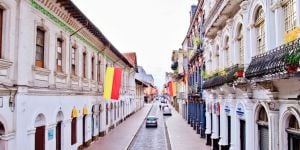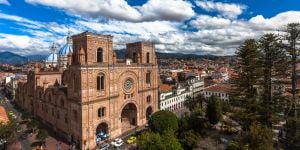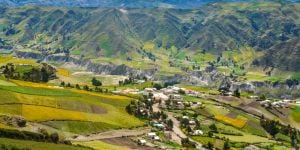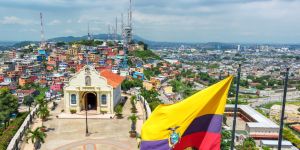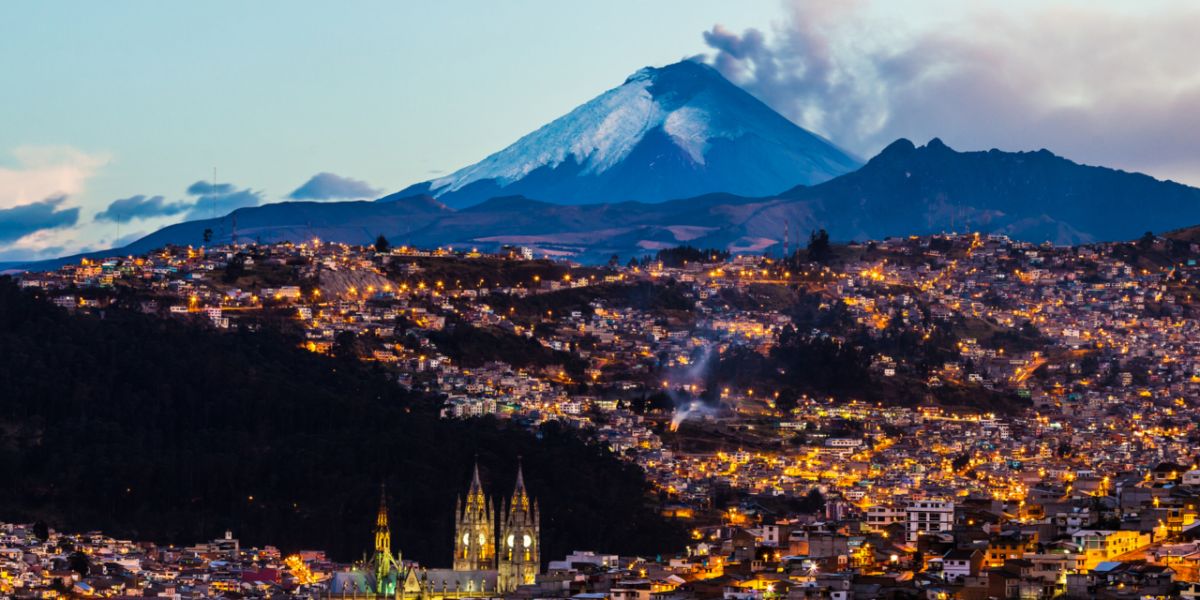
For the past decade or so, Ecuador has moved between the number one and number two spots in polls that rank worldwide retirement havens. The advantages of retiring in Ecuador listed in these polls are seemingly endless and sound almost too good to be true. So, what's the real deal? Here are some of the high points.

Low cost, high lifestyle
The first thing that usually gets mentioned about Ecuador is the low cost of living. However, it isn't cheap so much as it is a bargain. It's about the quality and quantity of essentials you can buy for the small amount that you spend. This applies to food, eating out, housing, cultural life, and healthcare. While costs vary from region to region, the same amount of dollars will go towards a better quality of life almost anywhere in Ecuador when compared to, say, Western Europe or the United States. While you can spend as much as you'd like to in Ecuador, many retired expat couples live quite comfortably on a monthly budget of less than $2,000, and some on even less.
Affordable, quality healthcare
The healthcare system in Ecuador is recognized as one of the best in South America. Hygiene is emphasized in both private clinics and public hospitals. Many Ecuadorian doctors have studied either in the US or Europe, but have returned home to Ecuador to enjoy the improved quality of life for professionals. Most medical and dental treatments cost a fraction of the price they would abroad. A visit with a doctor ranges from $25 (generalist) to $45 for a specialist. Lab testing ranges from $12 for a urine test to $160 for a full panel test of everything. Surgeries are one half to one fourth the price you would pay in the United States, for instance, a knee replacement can run from $1500 to $2500. A dental cleaning is around $25, a crown between $300 and $400. Dental and medical tourism abounds in Ecuador and many visitors come to Ecuador just for the health & dental care (and plastic surgery!). Full coverage private medical insurance plans for seniors range from $60 to $250 per month, with most carriers paying between 70% ' 90% depending on the coverage you choose. Permanent expat residents are eligible for the public health system, which covers all medical needs for $66 per month on average for a retiree over 65, or $78 for a married couple.
Over 65? The perks of being a senior in Ecuador
In Ecuador, seniors are respected and receive V.I.P treatment, and anyone age 65 and over is entitled to a number of advantages. Seniors are spared from standing in line too long at places such as banks, grocery stores, and government offices where they are offered a special waiting line. As the constitution extends the same rights to senior foreign residents, you may expect a 50% discount on cultural and sporting events, electric, water, and property bills, bus passes, and international airfare originating in Ecuador. Seniors can also get refunded up to $90 per month of the 12% value-added tax (the national sales tax) on most purchases and services by keeping receipts (facturas) and submitting them monthly to the government agency SRI.
Choose your lifestyle
Expenses and costs can vary across Ecuador, partly because the country, while small and with a moderate climate year-round, has distinct regions. Whether you prefer the beach, the mountains, the jungle, the countryside, or the city, you will find a spot in Ecuador that suits your preferred lifestyle. The city of Cuenca is an especially popular choice for retirees, with its beautiful rivers, mountains, and cosmopolitan lifestyle. Cuenca boasts an estimated 5,000 expat residents scattered among the half a million inhabitants. Many retirees prefer larger cities such as Cuenca, Quito, and Guayaquil even though these cities tend to have higher living costs than smaller towns or the countryside, due to the amenities that these larger communities offer a larger population. Others prefer the quiet of the countryside or the laid-back beach lifestyle of the coastal areas.
First steps for expat retirees
All these glowing reports probably have you ready to start your 'tercera edad' (Spanish for 'senior years') lifestyle in Ecuador right now, but not so fast! You will need to go through many formalities first. To live full-time in Ecuador, expats will need to obtain first a 2-year temporary residency visa, and then apply for a permanent residency visa. In addition, holding a visa implies respecting certain conditions. You won't be able to be out of Ecuador for more than 90 days each year within the first two-year period after you've obtained residency without incurring a financial penalty, or perhaps even losing your residency visa.
The majority of retirees apply for one of three types of immigrant visas:
The 9-I pensioner visa requires giving proof that the retiree has a monthly minimum income of $800 that will continue during the resident's lifetime, such as Social Security or a pension, from their country of origin. The retiree's spouse or blood relative may then get a 9-VI dependent visa, with an additional monthly $100 income required for each dependent.
The 9-II investment visa requires an investment in Ecuador of at least $27,020 (and an additional $500 per each dependent) that must not be sold or cashed in while the residents hold the visas. This can be in the form of a dwelling, land, or a certificate of deposit in an Ecuadorian bank. The real estate must have a value set by the Municipality that is no less than the required investment, as real estate is often sold for more than the 'taxed' value set by the Municipality.
The 9-V Professional visa requires proof of a minimum of a bachelor's degree from an accredited university that is listed on the Ecuadorian Education (Senescyct) system's list of approved Universities. You must submit an apostilled degree and show proof that you attended actual classes for a minimum of time, and did not receive your degree over the internet. If your university is not listed, you may petition Senescyt to approve your university but be forewarned that this approval process may take anywhere from six to 12 months.
Furthermore, all visa applicants must submit a clean criminal background check that is no more than 60 days old on the date of application, and some visa applications also require proof of income (bank statements of 3 months).
Hiring an Ecuadorian attorney to file your application may help you navigate through the visa process, even from abroad before you arrive in Ecuador, especially if you do not speak or read Spanish. Fees for these services vary but can reach $2,000 per visa. However, if you encounter any document issues, a good facilitator or visa lawyer can help with the processing which can take anywhere from three to six months.
Our article on getting a visa in Ecuador lets you know in more detail what to expect and what will be expected of you. Paperwork for visas can be tedious and frustrating, unfortunately, as the requirements can be strict. A good start is to fill out the application form for an immigrant visa.
Useful links:
We do our best to provide accurate and up to date information. However, if you have noticed any inaccuracies in this article, please let us know in the comments section below.

